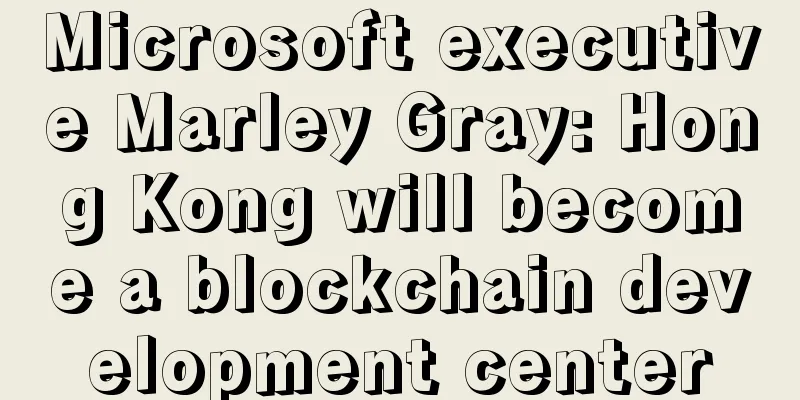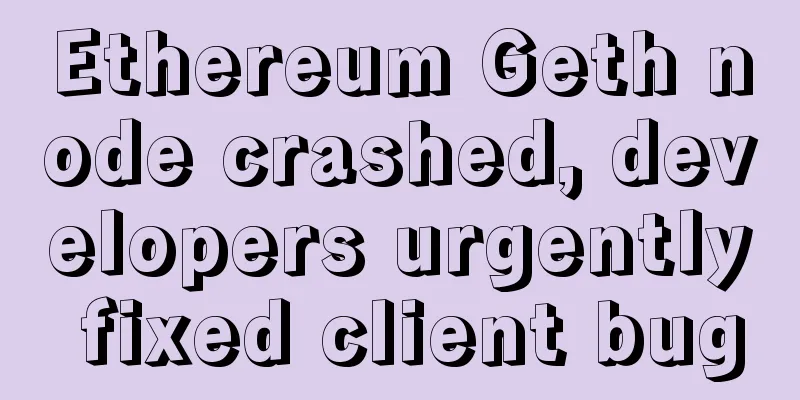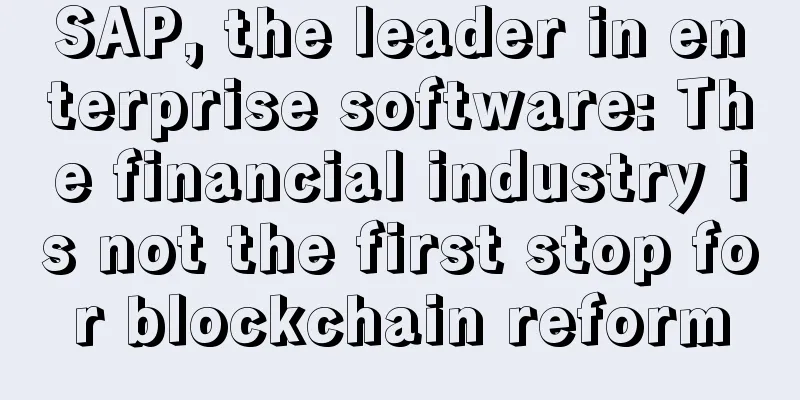Microsoft executive Marley Gray: Hong Kong will become a blockchain development center

|
Hong Kong, a global financial hub, will become a hub for blockchain technology, along with London, New York and Singapore, due to its economic clout as the world's largest financial hub, according to a senior executive at computer giant Microsoft. Marley Gray, Microsoft's head of business development and strategy, said that within three years, banks and other financial institutions will be using blockchain. Gray believes that the above four cities will become hotbeds for blockchain financial services.
Microsoft released its Azure cloud blockchain-as-a-service (BaaS) product last year. Microsoft is currently working with R3, an international alliance of more than 40 financial institutions that aims to provide distributed ledger technology solutions. Earlier this year, the World Economic Forum said that 80% of banks will launch blockchain projects by 2017, and 90% of central banks have begun to pay attention to this technology. In the past three years, investment in the blockchain field has reached $1.4 billion. Hong Kong’s Financial Technology Steering Committee has released a report detailing how blockchain can be used to reduce transaction costs for financial institutions and reduce fraudulent transactions. Benedicte Nolens, head of risk and strategy at the Hong Kong Securities and Futures Commission, also mentioned in June this year that blockchain has the potential to combat money laundering. Traditional financial systems rely on middlemen or centralized databases to record and confirm transactions, while blockchain stores information across the entire network, allowing any participant to access the corresponding information. Blockchain technology can reduce the risk of fraudulent transactions and provide a certain degree of transparency, but its records are almost impossible to change. Gray said that given Hong Kong's huge potential in the field of trade finance, blockchain technology is the only choice. Gray said that in addition to the financial services and trade sectors, medical companies can use blockchain to track records, media companies can use blockchain to protect copyright, and government departments can use blockchain to transfer property rights, which can be completed in just a few minutes. Citizens can use blockchain to create their own identity information (medical records, etc.) and then connect it to the government's database. The Estonian government has signed a partnership with startup Guardtime to record the personal medical information of one million citizens on a blockchain. To learn more about blockchain applications, please click on the blockchain application topic. |
>>: Alex Batlin, head of blockchain lab Level39, leaves UBS
Recommend
Market analysis: Bitcoin fell into the adjustment range again, and the market began to rest
Author | Hashipi Analysis Team...
What does it mean when the end of the marriage line droops?
Each of us has our own palm lines. Even the left ...
Bitcoin's 2013 ups and downs reappear, and Dash and other competing coins are moving in a charming way
Which day in 2017 was the most exciting? Of cours...
How does a nose that is tilted to the right mean that it is unlucky for a husband?
When we look at a person's face, we usually l...
BNY Mellon joins State Street in targeting crypto trading by backing Pure Digital
Two of the world’s largest custodian banks have p...
Palm lines that indicate a tendency to cheat and lack of loyalty in marriage
Everyone hopes that they can find a partner who i...
What does it mean if a girl has a mole under her ear?
Different moles represent different meanings and ...
Several aspects of people who like to do things in a low-key manner
Some people are used to a high-profile style, and...
Ethereum stablecoin issuance exceeds $25 billion, setting a new record
According to DeBank data, the total issuance of E...
Why is it so important to participate in Filecoin?
01 What are IPFS and Filecoin When you first come ...
The more you like someone, the more you run away from them.
Sometimes, we all say that when we like someone, ...
What does a mole on a man's forehead mean?
The forehead is a manifestation of qi and blood, ...
Bitcoin in Simple Terms: Analyzing the Intrinsic Investment Logic of Bitcoin
This article analyzes Bitcoin assets in an easy-t...
Ethereum hits a new all-time high, and the mainstream currency rotation market is coming
Author | Hashipi Analysis Team...
What kind of face will make a woman's career flourish?
If you want good career development, your own eff...









